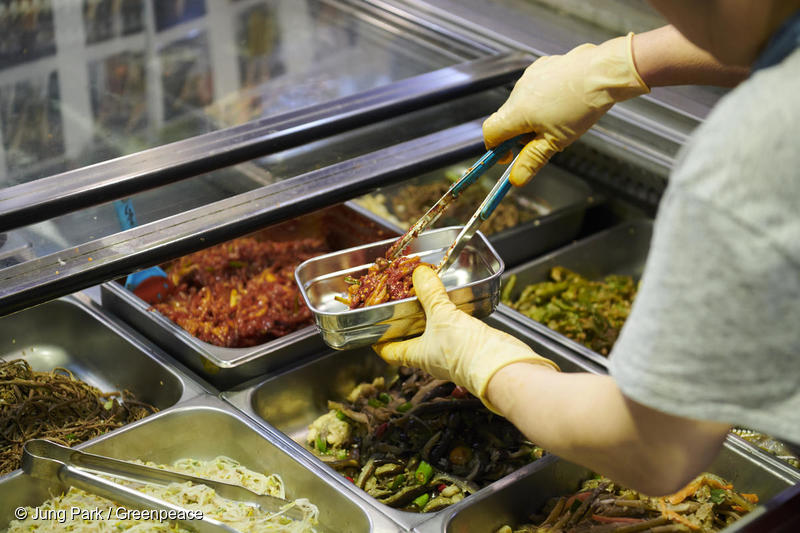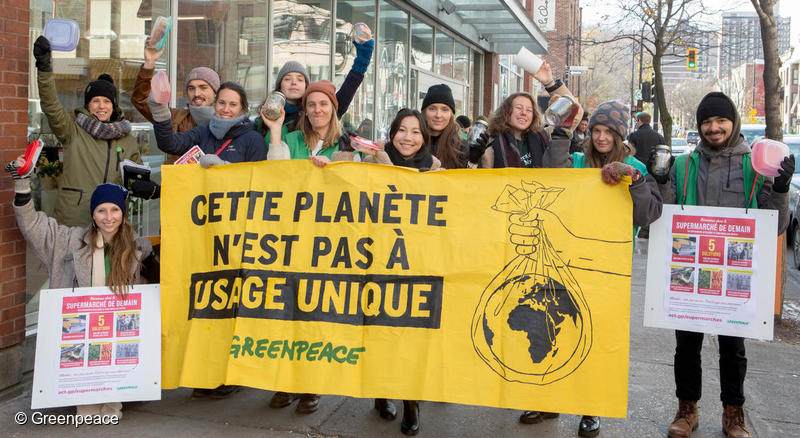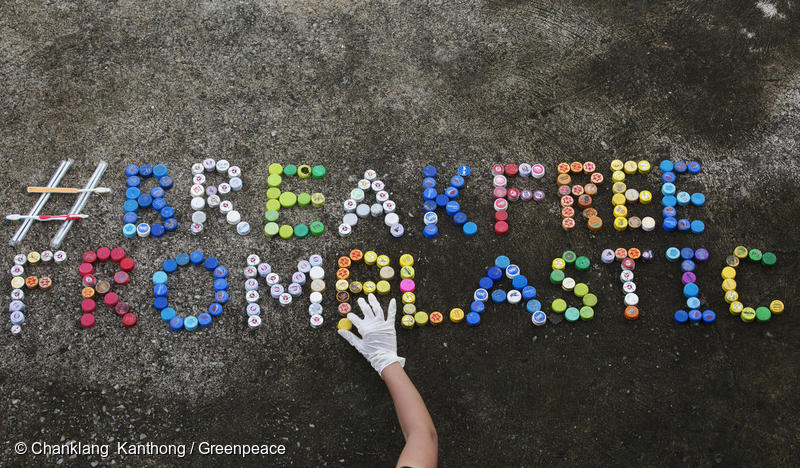A Blog Series with Tips, Tools, and Reflections

In recent weeks, the coronavirus pandemic has sparked a wider conversation about how people who want to continue to avoid disposables, support reuse and refill alternatives, and push for zero waste solutions can proceed, while being mindful of health. We aren’t the health experts, but we can offer some tips, tools and reflections on how we can navigate through this difficult time and think about preparing for public health issues that may arise in the future, while also keeping the health of our ailing planet top of mind. So, as we still envision the plastic-free future we want, how do we continue to dodge plastic in our daily lives, hold polluters accountable and prevent rollbacks on the awesome progress we’ve made in growing our Reuse Revolution?

Well, we do what we can within the constraints, and expert/scientific advice, we’re given. Let’s just call it out, these are super weird and ever-changing times. During public health crises like this, especially if you or someone you love is high risk, it can feel scary and uncertain when figuring out how to engage in your usual daily and weekly routines. It can be hard to know if you should still be sharing that plastic pollution article, or if you should focus only on supporting your immediate community’s needs. Should you take your container to that store to refill? Is it ok to ring the alarm about the various other crises facing our planet when you know people are sick? It can be a confusing time to know what’s best, especially in evolving situations.
During particularly difficult periods in history, hope and glimmers of light can emerge. It can be a time when people and society adapt, supporting those who most need it and finding new, better and beautiful ways of operating. When it comes to tackling some of the biggest environmental crises of our time, we know that we need to keep moving in the right direction. We have been making progress on so many fronts, and that’s something to remember and celebrate.
It’s become clear over the last few weeks that people want to keep up the momentum and want solutions, while being mindful of health. So it is little wonder that when it comes to a back-track on reuse or BYOX models, various companies have noted that those measures are temporary. Of course we’re also seeing companies take advantage of this moment to double down on their single-use plastics agenda, but Greenpeace, the wider Break Free From Plastic movement, and so many of you, won’t let them.

People are raising questions about the longer-term vision on how we engage with reusables and refill models, and unpackaged goods in a way that addresses our external pollution, climate, oceans, biodiversity (etc!) crises but also keeps our communities safe from contagious illness. These are super important questions and discussions. We need to think big about the role that corporations and governments must play in ensuring health and safety are addressed in the Reuse Revolution, and how we can work together to keep up the progress we’ve already made and ensure the systemic change that happens as a result of this crisis will nurture both human health and planetary health.
For those feeling eager to continue to avoid plastic as much as possible, and push for a change in your community, there’s still lots you can do by yourself and from home, and to prepare for any similar public health scenarios in the future. If you’re not quite there yet, that’s ok too. We’ll keep sharing ideas and options and will welcome you back when the time is right. <3
Here are some tips on staying zero waste during uncertain times:
- Follow health advice: first and foremost, do what you feel is best based on the expert health information you’re given.
- DIY and go back to basics. While we all love a tasty beverage on the go, or hitting our favourite restaurant for some (veggie!) sushi, now is a good time to Do It Yourself. Reach for those cookbooks that haven’t been used in awhile. Or check out our veggie cooking atlas! Brew your coffee or tea at home, make your own sushi (it’s surprisingly easy!) and try those muffins or oat mylk from scratch! Been meaning to attempt your own lip balm or some beeswax fabric wraps? So much of dodging packaging relies on getting organized, and what better time to figure out your zero waste plan of action!
- Ask questions. Spark up a friendly conversation with the establishments you frequent. Ask how they are managing in light of heightened health concerns, whether they can meet any package-free or refill requests, and how they plan to employ refill and reuse models in the future. Even if the answer is that they currently don’t know or can’t allow reusables, it’s useful to remind them that you support them creating reuse and refill models that meet sanitization protocols, and that you don’t support disposables.
- Shop package-free for bulk. If it is still safe in your community to be out for a shop, or in the future when you hear that a health issue may be on the horizon, it can be a good time to pad your pantry with your favourite dry goods and produce that lasts like onions. If you already like to grab various bulk ingredients, grab a bit extra to plan for stores that may take a cautious approach. Many bulk and zero waste stores already have clear sanitization measures, but in the event that other stores are less equipped to continue to offer package-free or bulk items, it’s great to be proactive.
- Follow the lead of the trusted establishments you frequent. If your bulk or zero waste grocer, or local restaurants, are still open during a time of heightened public health concern, it is likely that they’ve weighed the risk and feel confident in their ability to operate in a way that meets health and safety requirements. Since we are all germy beings, there is always some level of risk but some companies are better equipped to mitigate or address that risk because their business is dependent on reuse and refill models. If a company is saying they’re concerned about risk then it may be a sign that you should take their word for it. Ultimately, companies must create models that are safe and socially and environmentally responsible, but if a company isn’t there yet, a health crisis may not be the best moment to call their bluff.
- Stay connected. Keep following the groups, organizations, and people who inspire you in the movement. Greenpeace will be sharing ways to stay engaged in the weeks to come and we look forward to connecting with you from our homes to yours. Follow us on Twitter, Facebook or Instagram, or reach out at [email protected].
Stay tuned for the next blogs on how to continue on our zero waste journey.
Note: Your best source of information on how to identify and protect yourself and others from COVID-19 is official information, such as these Government of Canada public health awareness resources

Discussion
Hi therе it'ѕ me, I am also visiting this site on a regular basis, this website is in fact fastidious and the users are really ѕharing gοod thoughtѕ.